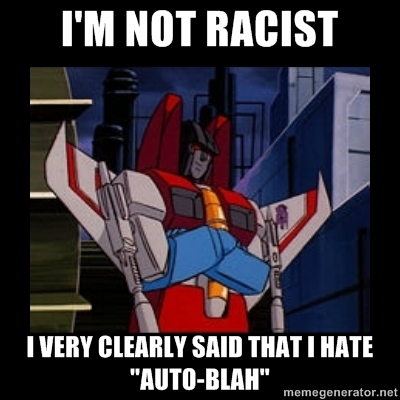I have more or less given up on expecting that religious folks will recognize the inherent contradictions between their secular morality and their religious instruction. We all have blinders about our own bad behaviours and illogical thoughts, but religion is particularly protected from introspective self-scrutiny. Matters religious are supposed to be believed “just ’cause”. Faith demands that we suppress our instinct to reject those things which are logically impossible or unsupported by evidence and simply accept a particular dogmatic instruction. Thus is a capacity for doublethink built, and with it a resistance to see hypocrisy as in any way problematic.
That being said, I am repeatedly fascinated by the way in which many “moral” principles that are described along religious lines come into conflict with secular moral principles that can be derived philosophically. Human beings use a variety of sources to determine right from wrong, and we’ve developed methods of decision-making when circumstances present us with a novel situation or a contradiction. How do we do the right thing in a circumstance we’ve never encountered before? Can we draw a parallel to something we’ve seen before? What happens when rule X and rule Y come into conflict? Do we discard one rule? Both? Is there some nuance we can find?
Such ethical wheeling and dealing is a necessary fact of life in a world that throws all kinds of challenges our way. Bound within certain ethical frameworks about the definition of ‘the good’, we can find ways to make decisions that satisfy our innate desire to feel good about ourselves. However, this kind of nuanced thinking is denied to us when we adhere to regulations that we see as inerrant. If we must follow the rules, we have no recourse when, for some reason or another, we find the rules in conflict with each other. [Read more…]


